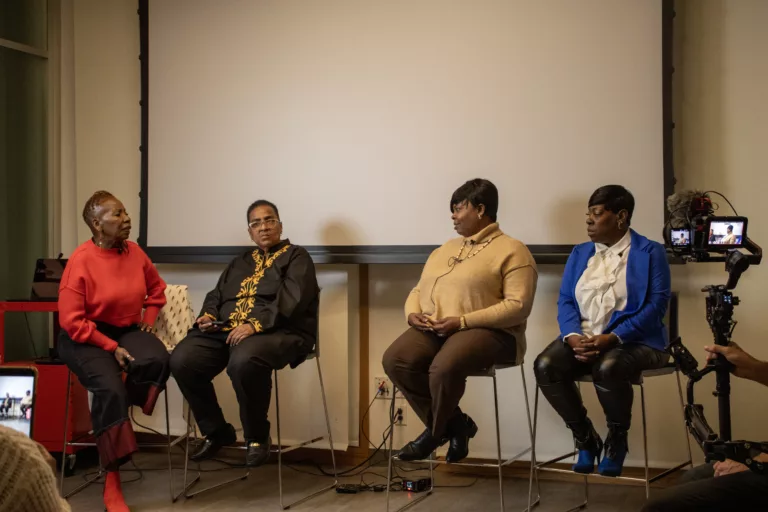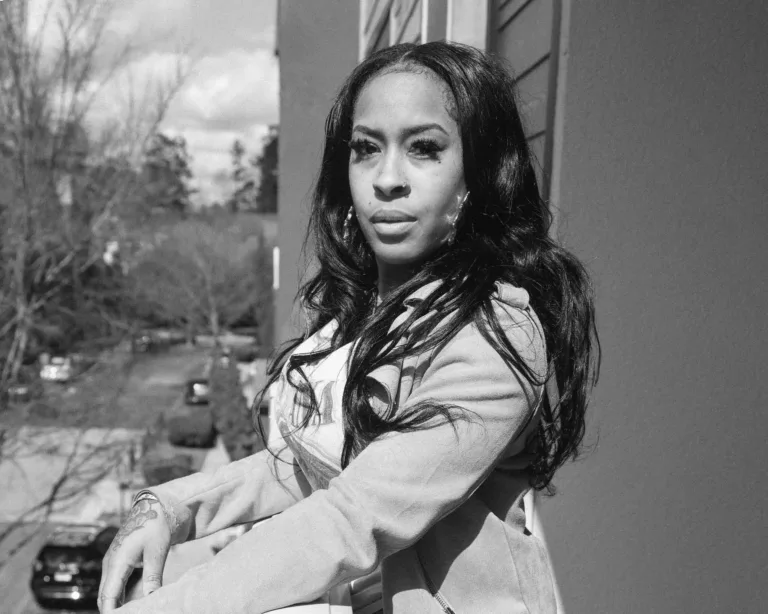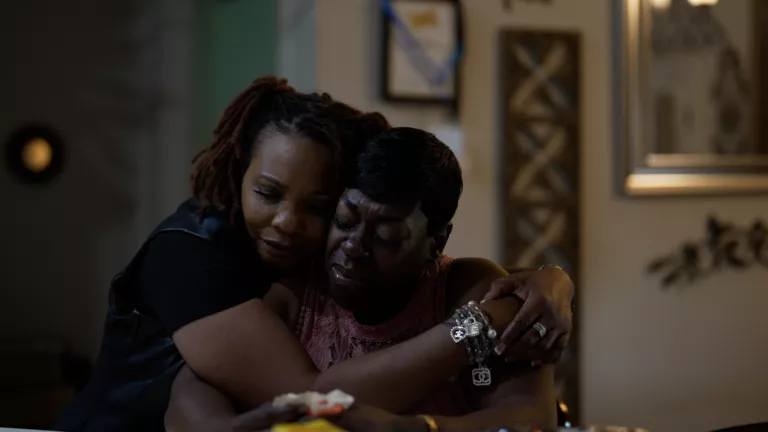Republished from NewsOne.
Race Forward Shines A Light On The Plight Of Incarcerated Women For Women’s History Month
In honor of Women’s History Month, Race Forward, a racial equity organization, is releasing its long-awaited documentary, Women Transcend, which gives a poignant look into the plight of incarcerated women across the U.S.
According to a press release sent to NewsOne, Race Forward’s riveting documentary will highlight the lives of formerly incarcerated women such as prison reform activist, Cheryl Wilkins and re-entry specialist Ivy Mathis, who was sentenced to life in prison as a child, but released in 2018 after community leaders fought to overturn her conviction, the Voice Of The Experienced website noted.
Women Transcend will give viewers an in-depth look at the profound negative impact of the carceral system on women and the ongoing advocacy efforts for clemency and reentry programs. The raw and honest documentary prompts viewers to contemplate society’s acceptance of systems perpetuating punishment and isolation, particularly amidst a surge in female incarceration rates. A study conducted by The Sentencing Project found that since 1981, the imprisonment of women has surged by over 500%, disproportionately affecting Black women at a rate 1.6 times higher than white women. Through intimate narratives shared by individuals like Wilkins and Mathis, viewers are confronted with the deeply personal and agonizing experiences of incarceration and how it impacts women who are often the backbone of their communities.
“Over 60% of Incarcerated women live more than 100 miles away from their kids, making them less likely to live close to their children than men. 11% of incarcerated women compared to 2% of incarcerated men report having a child in foster care, which can potentially expose their child to trauma,” Race Forward noted in their press release.
Throughout the documentary, Wilkins and several other activists speak candidly about the emotional, psychological and societal factors that steered them down a life of crime.
In 1997, at the age of 34, Wilkins — affectionately known as “Missy” among her peers — found herself entering Bedford Correctional Facility, serving a ten-year sentence for armed robbery, according to her interview with Salon in 2018. Prior to her incarceration, Wilkins had been disconnected from formal education for a decade. She vividly recalled the pervasive influence of gangs, violence, and drugs permeating throughout her neighborhood in the Bronx, New York, not only her community but also her educational environment.
Hoping to break free from her circumstance, Wilkins made the difficult decision to abandon her education during the eleventh grade. She opted to enroll in the Job Corps, eventually being relocated to Cleveland, where she successfully obtained her GED. Upon returning to New York City, she pursued higher education at a for-profit college, a choice that left her burdened with financial debt and no degree. After several unsuccessful attempts at furthering her education, Wilkins found herself entangled in street life and crime. This downward spiral culminated in her involvement as the getaway driver in an armed robbery attempt orchestrated by two associates.
She was able to turn her life around thanks to a college program that she helped to reinstate at Bedford Correctional Facility. Now, Wilkins is the senior director of education and programs at Columbia University’s Center for Justice, where she helps to shine a light on America’s mass incarceration problem.
During an interview with Colorlines in April, Wilkins opened up about how college helped her to heal from the trauma she sustained behind bars.
“A good percentage of women inside, they will put the blame on themselves as to why they are imprisoned. I did that. I committed a crime. Never thinking that if I had jobs in my neighborhood, I might not have went to prison. If the school systems were better and they were taking some interest in what I was doing, I might never went to prison. If there were better health care services, I might not have been to prison,” Wilkins said.
“We don’t think about it in that way until we quote unquote, wake up. And so that’s what the college program did for me. That’s what organizing inside did for me because there was no mistake,” the activist continued. “When women go to prison, you’re not only locking up a woman, you’re locking up a family, you’re locking up a community. We become not just women that went to prison, we become bad mothers in society’s eyes. We are bad daughters. We are horrible wives. It’s so much that’s put on a woman because of something that she may have gone through. And the trauma associated with going to prison never gets talked about.”
Women Transcend underscores the imperative of addressing the root causes of female incarceration, advocating for a more holistic approach to rehabilitation and social justice, Race Forward said.
Will you be watching Women Transcend this Women’s History Month?


